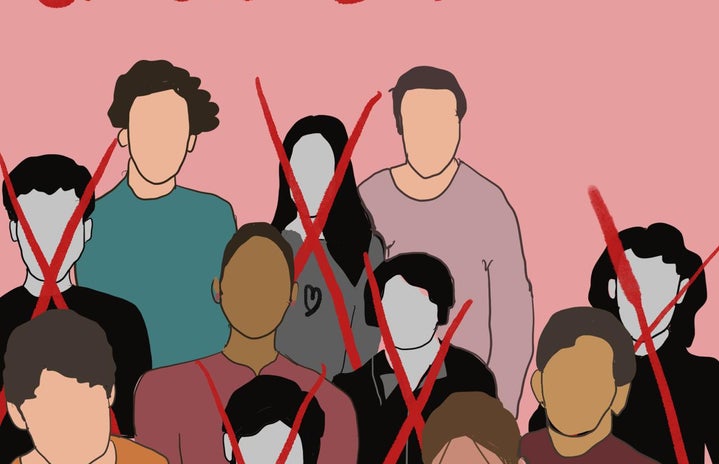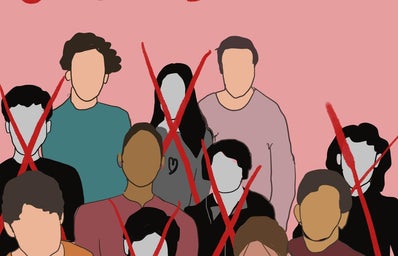Trigger Warning: mentions of sexual assault and rape
Disclaimer : This article was written in collaboration with Manipal University, however, a different version of the article can be found on their page. The article below is an opinion piece and does not represent the views of Her Campus Manipal.
It was a bright Sunday morning. Shane Dawson was trending on Twitter, James Charles had uploaded yet another apology video; just a normal day on the Internet. Summer of 2019, and ‘cancel culture’ was beginning to bloom. Friendships were being destroyed, agreements torn up, and promises of silence broken. It all sounded like a badly written soap opera and yet, we were all living for it.
Dubbed the ‘Court of Public Opinion’, (rather condescendingly I might add) and newly armed with the sceptre of power called ‘cancelling’, the Internet awaited it’s next target. After successfully dethroning rapist and former Hollywood God Harvey Weistein, we basked in the confidence of our collective voice. Finally, the Internet was uniting for something useful! Suddenly everyone wanted to get in on it. They all had an opinion (the same one), and no matter how uninformed, it helped make a positive difference. Sometimes.
A quick Google search of the term cancel culture brings you to a Merriam Webster page that defines it as “the removal of support for public figures in response to their objectionable behavior or opinions.” Sounds great, I completely agree, down with the bigots! So why this article? Well nothing is ever black and white, especially with the Internet involved.
Cancel Culture started as a way to publicly call out celebrities on their racist, sexist or homophobic behaviour which in the past has gone unchecked due to their influencial status in society and the power that comes with it. The main impact this culture generated was the rise of checks and consequences; every remark was scrutinized and filtered. Calling out every negative statement and action was thus used as one way to propagate education about social matters and the privileges that one upholds. Moreover, it has given a rightful voice to the marginalised communities to express their problems to the world. It helped indict powerful men like R Kelly and Harvey Weinstein for their crimes, giving justice to their victims.
But, on the other side of the spectrum lie cases like Johnny Depps. Back in 2016 he was accused by his ex- wife Amber Heard of physical abuse. Notice how I use the word ‘accused’ and not ‘convicted’? Turns out the Internet failed to make such a distinction, as he lost his movie deal with Disney for Pirates of the Carribean, his credibility and eventually his career. Four years later in 2020, it has been revealed by the Court (the legal kind, not the one with Internet surfers) in an on-going trial that the accusations were part of an “elaborate hoax” by Heard and in reality Depp was the one being abused. Well, plot twist. While the case is still ongoing, we clearly missed a few facts, jumped to a few conclusions and let a hate train go on for years at end. The Internet is mostly silent except for some background noise calling out the hypocrisy. They worked hard to cancel Depp and now he’s the good guy? That was a terrible thing to happen, anyways, did you hear about Dalgona coffee…
Over time, the history of false allegations mixed with warranted ones reduced the legitimacy of ‘cancel culture’. This amalgamation of lies and truths began affecting the real victims too. Justice was rare. And soon people began engaging with it less. But its soul remained. Like the ugly tail of the lizard that writhes after being severed from the body. Is the “cancel culture’ just mob mentality? Are we overestimating the impact of ‘cancellation’? Do we know all the facts? Is moral ambiguity a real thing?
The rise of cancellation as a mode of accountability also comes from the direct rise of stan culture. When fandoms became a widespread medium, the idolization of celebrities became a part of it too, and the other shoe dropped soon enough as people started questioning the validity of this idolisation and the dangers of uneducated stanning. This led to people critiquing the choices and the words that come out of a public figure’s mouth and analyzing the intentions behind it. The fans bonded over their favourites but the problem of excusing everything their favourite did just because they were their idol still remained heavily. This can be seen in the cases of a lot of celebrities like Ansel Elgort. When a young woman accused him of rape, his fans were quick to comment about how “lucky” she was (referring to the physical attractiveness of the star). Very soon, the Internet found the next thing to obsess over and the girl was forgotten. Elgort still remains a well paid, popular actor with seemingly no damage done to his reputation.
The problem with ‘cancel culture’ lies in the lack of a due process. The Internet thrives on its reactionary politics and knee jerk reactions. And while many of the victims are wealthy, influential celebrities, others too get caught in the web like Emmanuel Cafferty, a truck driver who appears to have been tricked into making an “okay” symbol by a driver he cut off at a traffic light. The public claimed that this was a deliberate use of the symbol as a white-power gesture, and he was promptly fired. He was not just ‘caught in the crossfire’. It was a deliberate act of “cancellation”. The argument of ‘greater good’ is ignorant at best, because this working class man just lost his only source of income.
Okay so now we have established that the Internet isn’t always right. Surprise, surprise. But what about Jeffree Star (for racist comments and much more if we are being honest) and J K Rowling (for transphobic tweets) and Shane Dawson (for blackface and paedophilic comments)? We were right about them. Yes, you were and that’s great. But many of them despite being cancelled by the Internet still sit on their commercial success. Harvey Weinstein, Bill Cosby, and Kevin Spacey, have effectively been canceled. But it seems that the main objective of this culture is to embarrass their target and not to completely retract their support and hold accountable their career that’s been built on years of questionable actions.
The honest question we should all be asking is what has been the real impact of ‘cancel culture’ so far? Is the call for accountability working well enough to bring down the influential figures of the world? Or has it done nothing but create an online justice system (to show solidarity towards its victim) but with no impact in real life whatsoever? It is a very powerful weapon if wielded correctly. Times are different and one must always be careful of what they speak. But who is really winning, if most of the privileged and powerful are still on top, devoid of any remorse?
Sources for the instances mentioned in the article:
Johnny Depp Amber Heard Case – https://www.usatoday.com/story/entertainment/celebrities/2020/07/28/johnny-depp-amber-heard-case-uk-tabloid-libel-case/5524679002/
https://www.bbc.com/news/uk-53565415
Jeffree Star and Shane Dawson Case
https://www.vox.com/culture/2020/7/23/21331495/jeffree-star-shane-dawson-racism-tati-controversy
J K Rowling Case
Ansel Elgort Case





